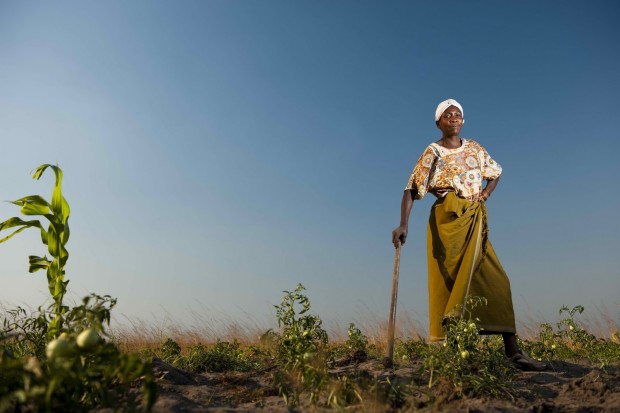Tractors for Africa: Will a Rental Model Transform Reality for Farmers in Tanzania?

Crowdfunding campaigns for various charitable initiatives (as well as even more dubious religious ones) are a dime a dozen these days. Many of them come nowhere near their goals, quite often raising no money at all (why not at least contribute to your own campaign, we wonder?). But I recently talked with someone who’s trying to use his professional expertise, not just personal empathy, to run a crowdfunding campaign to bring tractors to Africa – Tanzania, specifically.
About 75 percent of Tanzanians are involved in farming, hunting, forestry, or fishing, and agriculture accounts for around a quarter of the country’s GDP (compare that to 1 percent of GDP in the United States) and 80 percent of exports, according to Wikipedia and this government report. So agriculture is clearly important to Tanzania. But farmers there face many difficult issues, including lack of machinery, irrigation, and access to seeds and fertilizer. They also need better ways to get the food they raise to market.
Alex Piloto’s background in exporting heavy machinery made him wonder: would more machinery help transform agriculture in Tanzania? He decided to look into the matter a bit, working with a friend on the ground in Tanzania (Piloto is based in Montreal) to come up with a creative solution: renting out tractors to farmers. Using his knowledge and connections in the world of transporting heavy equipment, and the money he can crowdfund, Piloto plans to send a small number of tractors to a few communities in Tanzania, and train a local person in each community to maintain them and oversee the rental. By retaining ownership of the machinery, he hopes to prevent it from being sold, and play a more active role in its maintenance. Piloto acknowledges that the project will face many challenges, from ensuring equal access to the equipment for women to ensuring that the greater crop yields made possible by tractors will actually be able to get to market and be sold.
Because we’ve all seen plenty of well-intentioned but ill-informed charitable initiatives (think food donations distributed in containers the same color of land mines), I was intrigued by the promise of rented technology helping farmers, but still a bit skeptical. So I talked with a few people who work with nonprofits on agriculture in Tanzania to learn more, and they were rather skeptical as well. They acknowledged that having access to modern equipment would definitely help farmers, but confirmed there are many other pressing issues facing farmers as well, and that success on the ground would be tricky to achieve. One expert noted, “getting the tractors here, while difficult, will probably be the easiest part.” Similar projects have been tried in the past without success, and Tanzania’s own government bought $40 million in tractors from India only to see them sit idle because people couldn’t afford to buy them (a loan program later allowed some farmers to begin purchasing the equipment).
While this project is by no means a cure for agricultural issues in Tanzania, and faces many challenges, I think it’s a well intentioned effort that shows a greater willingness to think through issues than many other nonprofit initiatives that operate with blinders on. I can’t guarantee that Tractors for Africa will revolutionize agriculture in Tanzania, just like I can’t say that any technology is pure magic, but I can say that Piloto is a thoughtful person who seems truly interested in helping people, not gaining prestige. It’s a good reminder that despite the billions invested in grocery delivery and vegan mayonnaise (admittedly, yum) last year, less flashy concerns remain in many part of the world, and I genuinely think the machine rental concept is one worth exploring. So despite the many issues involved, I’ll be following this project’s trajectory, and I plan to explore the successes of some other rental models as well.





Farm equipment lets them become more independent. It’s important, since without that, their very lives come with strings attached.
(Vegan mayonnaise? Sounds a bit luxury. Then again, when I was volunteering at a food pantry, you’d be surprised at the things we got.)